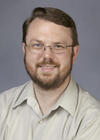In The News: Division of Research
As the Lyon County brothel battle intensifies, new data suggests Nevada's commercial sex market is bigger than any other U.S. state when you adjust for population.

The Culinary Union this week will conduct its first citywide strike vote in more than 15 years, but a vote to strike by a majority of 50,000 hospitality workers doesn’t necessarily mean a crippling walkout is imminent at dozens of Las Vegas casinos and hotels.

The Culinary Union this week will conduct its first citywide strike vote in more than 15 years, but a vote to strike by a majority of 50,000 hospitality workers doesn’t necessarily mean a crippling walkout is imminent at dozens of Las Vegas casinos and hotels.

The thought of another mass tragedy affecting Las Vegas is almost too much to bear, but a masked gunman scare at a local mall renewed fears it could happen again.
The EBU has played an important role in following the potential of esports for a number of years, holding its first Master Class for member broadcasters back in 2016. The EBU currently works with the esports industry to offer sports-simulation games to members, but also with the EBU News Exchange offering the possibility to access esports content for free use by all EBU Members, along with industry highlights, reports and news coverage. Some 15 member broadcasters in Europe are already very active in this sphere.
Human behavioral ecologist Alyssa Crittenden of the University of Nevada in Las Vegas has studied the Hadza since 2004.
Carnegie Mellon University announced the launch of what it says is the nation's first bachelor's degree in artificial intelligence, which the Pittsburgh institution hopes will extend its brand as a computer science training hub. The private research institution, which already offers nearly a dozen courses with AI theory and practical training, built the degree program's curriculum around mathematics, computational modeling and statistics, among other topics.
Odysseus, who voyaged across the wine-dark seas of the Mediterranean in Homer’s epic, may have had some astonishingly ancient forerunners. A decade ago, when excavators claimed to have found stone tools on the Greek island of Crete dating back at least 130,000 years, other archaeologists were stunned—and skeptical. But since then, at that site and others, researchers have quietly built up a convincing case for Stone Age seafarers—and for the even more remarkable possibility that they were Neanderthals, the extinct cousins of modern humans.
We've been up here for three days, trekking the 10,000-foot ridges of the Schell Creek Range of east-central Nevada. I take a heavy breath and continue along another granite-and-limestone slope flecked with bristlecone pines — gnarled, 2,000-year-old survivors found only in the American West's highest, harshest landscapes. The searing in my legs and lungs eases as the severe incline levels out into a grassy meadow ringed by aspens, their leaves quaking in the cool breeze. Donnie Vincent holds up a hand to halt me, and grins.

Graduating college students have long expressed their individuality by decorating their graduation caps with slogans and artwork, but a University of Nevada, Las Vegas professor says the themes have gotten more political in recent years.
Higher education has been transformed in countless ways over the past few centuries, but one thing remains largely unchanged: the mortar boards worn on graduation day.
Call it a fad, trendy, or something crunchy-moms do, but an increasingly large number of women are choosing to consume their placenta after birth. Citing improved mood, increased energy levels, reduced pain, and even increased milk production, many women swear by the practice termed placentophagy.





